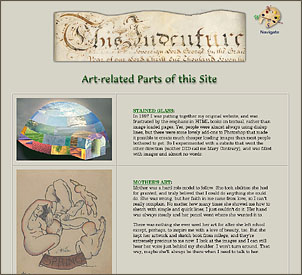paintings by W.A. Bouguereau, which appeared in the Salons of 1881 and
1882 respectively, and both of which are now in American collections. They are, in conception and
treatment, among the most purely classical of the painter's productions, and far above his average in refined and
tender sentiment.
The education of the infant Bacchus, our mythologies inform us, was confided by his immortal father
Zeus to the nymphs of Nysa in Thrace, to which fact lexicographers attribute his ancient Greek title
of Dionysus. The young god's childhood must have been a pleasant one, spent as it was among the Thracian groves and by the banks of the smiling river Nysa, in which the
artists shows him sporting with the ripples of the genial flood. The painter,
Joseph Victor Ranvier, is a native of Lyons, and learned to draw
at the local art school in order to become a designer for the silk and wall-paper
manufacturers. Having succeeded in accumulating a modest capital of his earnings in the service
of industrial art, he settled in Paris as a pupil of Janniot and of Richard,
and won his first medal at the Salon of 1865. He became
Back Forward
Chapter 6 Text
Laurent Joseph Daniel Bouvier






![]() Copyright © 2007, Mary S. Van Deusen
Copyright © 2007, Mary S. Van Deusen